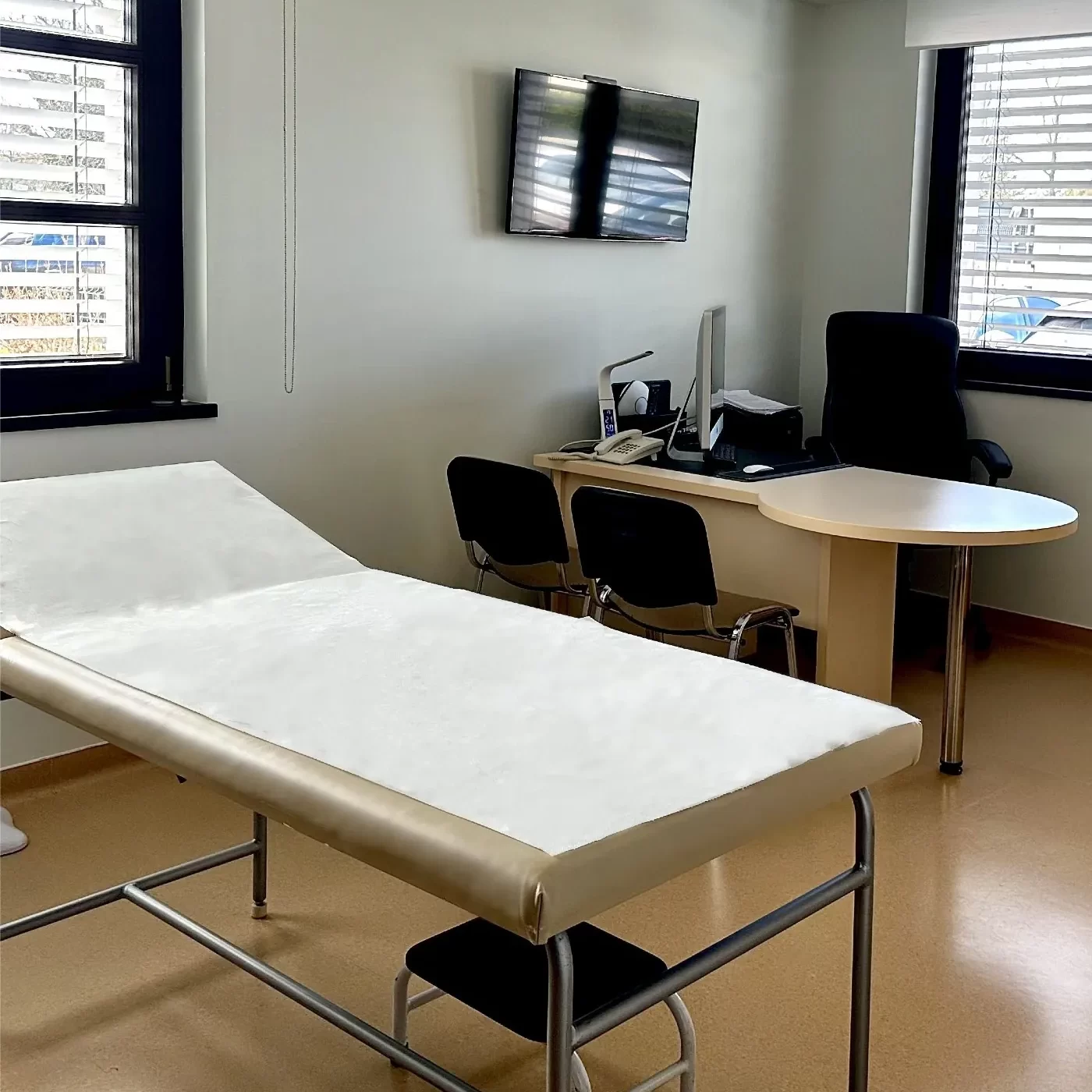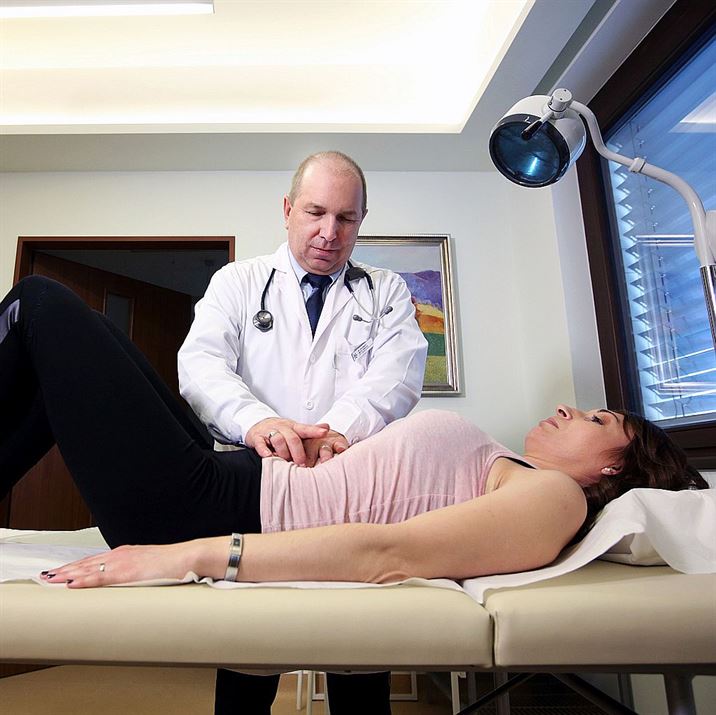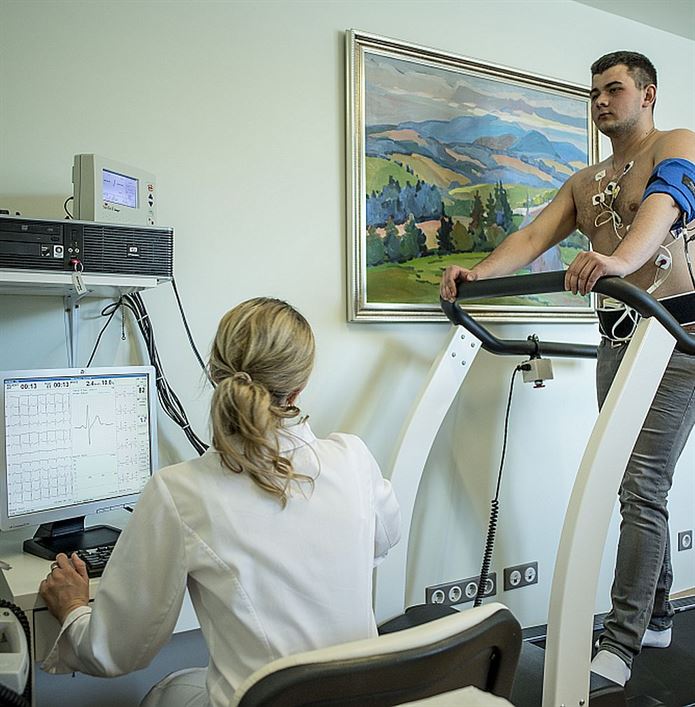Calendula Ayurvédikkus és Orvosi klinika
Diagnosztikai eljárások
Annak érdekében, hogy teljes képet kapjunk a beteg állapotáról, olyan feltételeket biztosítunk, amelyek lehetővé teszik a vizsgálatok elvégzését az előírt terápiák megszakítása nélkül.




Orvosaink előzetes konzultációja, beleértve a felmérést, a vizsgálatot, a diagnosztikai eszközöket és az Ayurvédát, valamint a hagyományos kínai és nyugati medicinát, mintegy 30-40 percig tartanak. Ezt követően a betegek mindennap orvosi viziten vesznek részt, hogy figyelemmel kísérjük a jelenlegi állapotukat, és időben elvégezzük az előírt terápiák esetleges korrekcióját a haladás függvényében.
Az ayurvédikus és az általános orvosi konzultáció magába foglalja a páciens felmérését az alábbiak szerint:
• jelenleg érintett panaszok
• kórtörténet, műtétek, súlyos fertőző • betegségek és egyéb betegségek
• társadalmi anamnézis, ideértve az életkörülményeket, a családi környezetet
• családi anamnézis
• foglalkozási ártalmak okozta megbetegedések
• pszichoaktív anyagok használata farmakológiai készítmények szedése, gyógyszer intolerancia és egyéb allergiás reakciók.
1. Prakriti meghatározása (a test felépítésének általános jellemzői)
2. Vikriti meghatározása (jelenlegi állapot, a dosha egyensúlyhiánya)
3. Vicár diagnózis az ayjurvéda szempontjából
Egy ayurvédikus orvos a betegség bármely szakaszát az „5 tükör módszerrel” diagnosztizálja:
• pulzusdiagnosztika
• nyelvvizsgálat
• az fülkagylók vizsgálata
• szem diagnosztizálása
• a bőrfelület vizsgálata.
Az ayurvédikus diagnosztikai eljárás nyolcféle adatot tartalmaz (Ashtavidya pariksha), amelyek alapján meghatározzák a betegség okát:
nadi pariksa – pulzus
jihva pariksa – nyelv
drik pariksha – szem
moutra pariksha – vizelet
mala pariksha – széklet
shabda pariksha – hang és egyéb zajok
sparsha pariksa – kitapintás
acriti pariksa – általános benyomás
A klinikán az ayurvédikus és a hagyományos orvosi diagnosztika mellett az alábbiakra kerülhet sor (bizonyos esetekben ez szükséges, más esetekben a beteg kérésére):
1. Kardiológiai vizsgálatok:
EKG
stresszteszt
Holter monitorozás
a vérnyomás ellenőrzése
2. Radiológiai vizsgálatok:
hasi üreg ultrahang
mellkas és lágy szövet ultrahang
pajzsmirigy ultrahang
alsó végtagi vénás és artériás ultrahang
3. Laboratóriumi vizsgálatok: több mint 250 marker ellenőrizhető a helyszínen – a klinika együttműködik Budapest egyik legjobb laboratóriumával (az eredmények a vér és a vizelet mintavételének napján készülnek el).
4.Szükség esetén Magyarország különböző városaiban konzultációkat és vizsgálatokat szervezünk szakorvosok bevonásával: sebészeti vizsgálat, röntgen-vizsgálatok, MRI, fogorvosi szolgáltatások stb.
Thank you!
Your reservation request has been successfully recorded!
Our colleagues will contact you soon!


